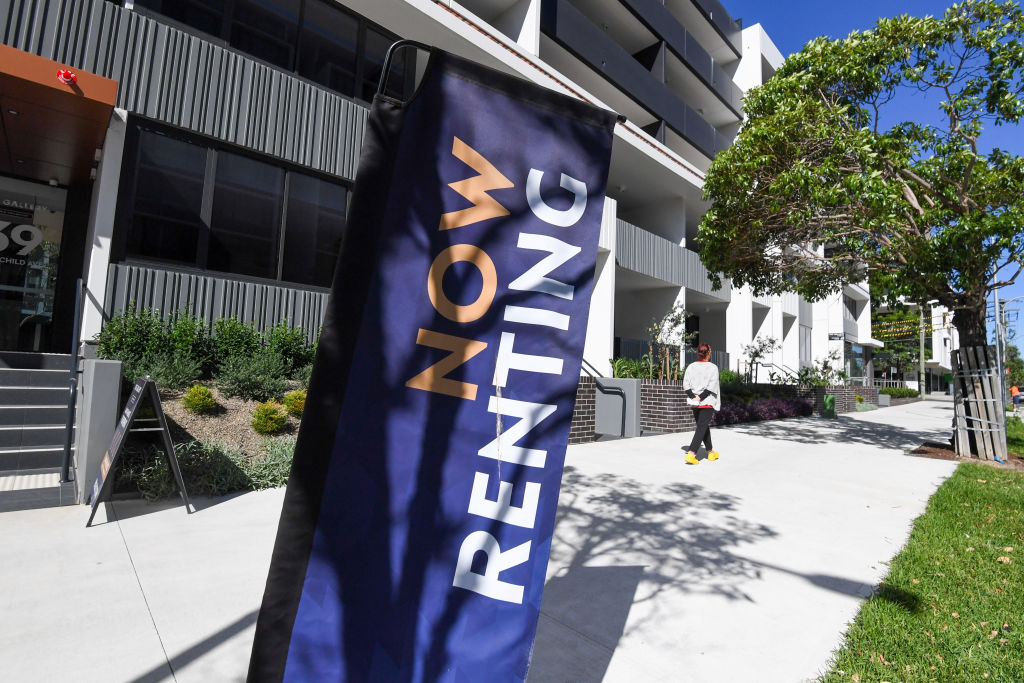How coronavirus has snapped Australia's fragile rental system

For years the balance between renters and landlords has become increasingly unstable, the relationship fractured by clashes during the past two federal elections, a state-by-state boost to rental rights, and a housing affordability crisis that has swelled the ranks of tenants.
The system’s ongoing survival was dependent on a lack of external shocks, but now the shock is here, laying bare the ways it fails tenants and their landlords.
Eminent housing expert Professor Hal Pawson said as much last week, but experts have been sharing that sentiment for years.
“It’s been easy for most people to be quite complacent about the housing system until three months ago,” the associate director at the City Futures Research Centre at UNSW told Domain. “This has exposed a number of weaknesses in the housing system.
“There are plausible scenarios which are really damaging to the entire economy and certainly the Reserve Bank is worried about that too.”
The most fundamental flaw with Australia’s private rental market is the financialisation of housing through tax settings such as negative gearing and capital gains tax concessions, allowing those who can’t afford to be landlords to become landlords as a method of wealth creation.
ATO data shows most properties are negatively geared, which means owners lose money despite claiming tax breaks. When the crisis began, negatively geared landlords told Domain they would struggle to entertain a rent decrease if asked.
This is unfair to both parties. If a landlord cannot afford to fix a leaky tap or a broken window, they cannot afford to shoulder the burden of an extra month’s rent when someone loses their job.
Another housing academic from UNSW, Dr Chris Martin, told Domain recently: “By insisting on continued rent payments out of individual tenants’ reduced incomes, or the public purse, or out of their super – at least until ASIC warned them off that – they are selfishly putting themselves ahead of really precarious households.
“The situation is unjust and tenants are right to be angry about it.”
Domain this week spoke to a renter working through the pandemic despite having asthma and a weakened immune system because of rounds of chemotherapy to fight an auto-immune disease.
She asked her landlord for a rent reduction so she wouldn’t have to work, but was frozen out by the agent, who said the landlord had flat-out refused it because her husband was terminally ill and could not afford it. He later died.
However, while this is unfair on the renter, it’s also unfair for her landlord.
Tying these decisions about financial wellbeing to the power to take the roof from over a family’s head has created a system where sympathy for each other is secondary to the health of investment portfolios.
Facebook groups set up to support tenants who need rent decreases are filled with more of the same. Almost every renter in these groups says their property manager has frustrated their efforts to get a decrease, and some have told Domain they suspected their requests were denied before they were even put to the property owner.
Efforts have been made to tip some power into the hands of renters by state governments, even before the pandemic. But these efforts are continually frustrated by the powerful real estate lobby.
State lobby groups don’t hide that they campaign on behalf of property investors. In Victoria during the lead-up to the passing of the new suite of rental laws, the REIV fought tooth and nail to avoid their introduction, claiming it would hurt the rights of landlords.
It claimed landlords would pull their properties from the market en masse because of new rules like pet laws and minimum standards. But few landlords so petty materialised.
In Queensland, the REIQ is running a campaign against similar laws. It also opposed the COVID-19-related emergency measures and could claim with some accuracy it was responsible for watering down what would have been the strongest protections for renters during the pandemic.
Renters do not have access to the same political power that landlords and agents do. Supports such as tenants’ unions are, for the most part, publicly funded, gagging them from criticising governments.
While tenants may be benefitting from reduced rents and higher levels of stock on the market, it shouldn’t be an international health crisis that leads to their obtaining the upper hand.
Australia’s usually tight rental markets and high rents leave renters with little choice but to fight over few over-priced tenancies. A cheap and secure alternative would reduce their need to compete in the private market.
Experts have suggested more housing options for renters and low-income earners through properly funded, well-maintained and sufficient public housing, and removing tax settings that incentivise investors to run at a loss as ways to prevent tenants getting screwed over again post-pandemic.
Tax changes would discourage precarious investments that inevitably fail if tenants miss rental payments, which could happen en masse once JobKeeper, mortgage holidays and eviction moratoriums end, smashing the economy and property market.
While the Prime Minister Scott Morrison met with bank chief executives on Friday to plan for the looming cliff, AMP Capital chief economist Shane Oliver expects there could be as many as 100,000 forced sales if support measures are suddenly withdrawn by governments and banks.
The banks, for their part, have stated publicly they do not want to see forced sales.
The wider, inequitable and persistent situation seems unlikely to be rectified.
Despite a few public housing construction projects here and there by each state government and the federal government at arm’s length, governments have appeared more interested in piecemeal demand-side housing stimulus that does little for affordability or housing security.
We recommend
States
Capital Cities
Capital Cities - Rentals
Popular Areas
Allhomes
More
- © 2025, CoStar Group Inc.







